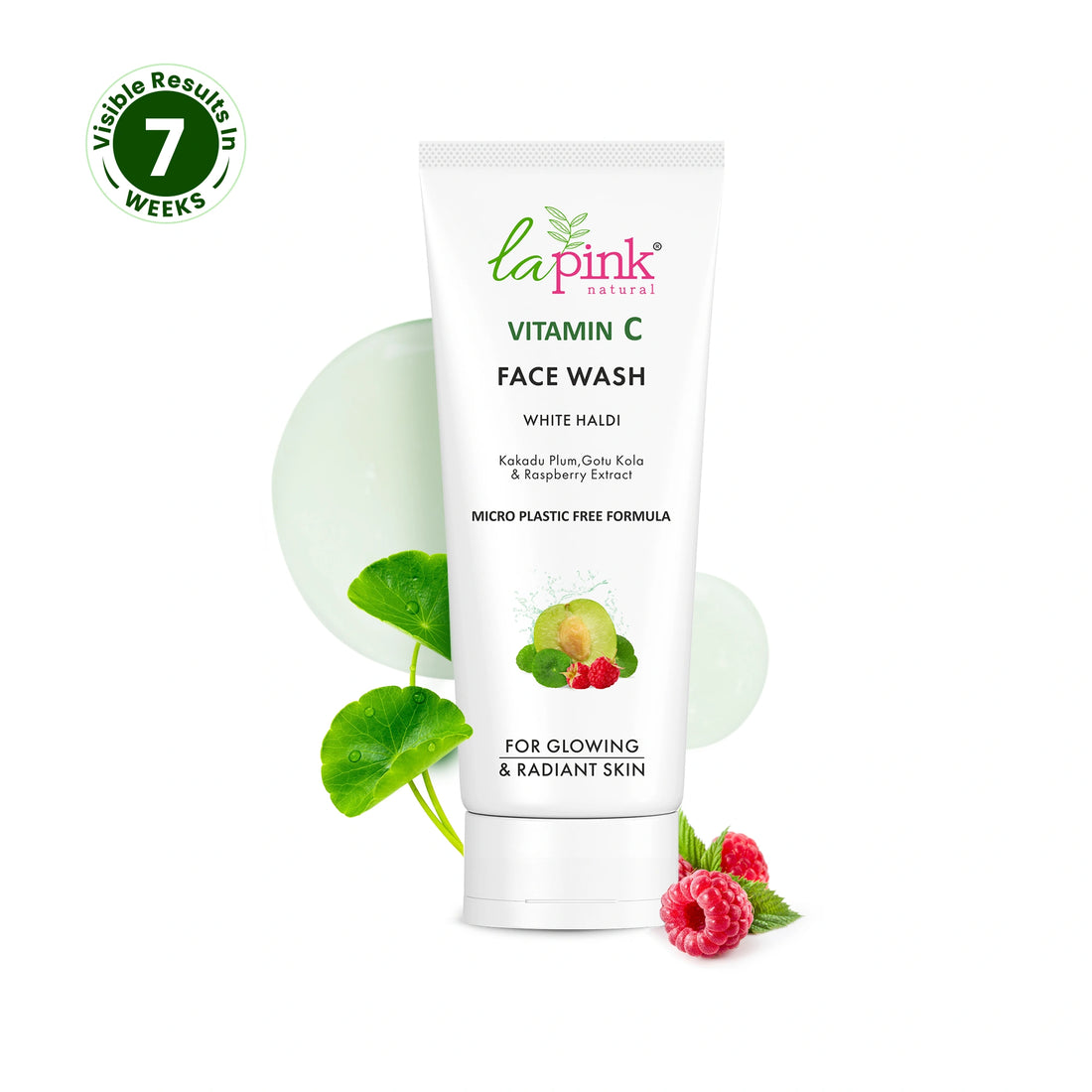Benefits of Salicylic Acid
Research over the years has undoubtedly proven that Salicylic Acid is a powerhouse ingredient in skincare and haircare products. It has various targeted benefits which have shown incredible results. Here are some key benefits of salicylic acid-based products:
Deeper Cleansing of Pores
This oil-soluble ingredient can penetrate into the skin and reach the deep pores to dissolve sebum and debris to open clogged skin pores. This action helps tackle blackheads and whiteheads. Salicylic acid has the ability to exfoliate skin, keep the pores clean, and reduce the risk of acne formation. A study shows that 2% salicylic acid paired with 0.2% zinc gluconate in a cleansing gel proved effective against truncal acne with regular use in just 42 days.
Regulating Sebum
Acne and oily skin are caused by the excess sebum production in the skin. Salicylic Acid has anti-inflammatory properties and the ability to regulate sebum production. It reduces inflammation in sebaceous glands and promotes better skin and scalp. Further, it helps reduce oil production and the size of sebaceous filaments in the skin.
Skin Exfoliation
Salicylic acid is included in a wide range of skincare products for exfoliation. The keratolytic properties in salicylic acid help soften the skin’s outer layer and dissolve bonds between dead skin cells, thereby, helping with new cell growth. This helps unclog pores, reduce whiteheads, and blackheads, and improves skin texture. It is clinically proven that Salicylic Acid helps smoothen rough patches, seasonal dryness, and scaly, bumpy skin.
Anti-inflammatory Properties
Our skin is delicate. When you have breakouts, your skin gets irritated and suffers from inflammation. Salicylic acid in skincare products helps reduce inflammation with its anti-inflammatory properties. It interferes with the production of prostaglandins, the inflammatory mediators on the skin, and suppresses the Cyclooxygenases, enzymes responsible for prostaglandin synthesis.
Helps Skin Renewal
Another advantage of Salicylic Acid proven by research is its ability to help renew skin. By combatting dead skin cells, it helps reveal fresh and brighter skin underneath. Studies show that Salicylic Acid helps in dealing with the appearance of dull, photodamaged skin with consistent use for 8 to 12 weeks.
Treating Scalp Conditions
If you suffer from dry scalp or dandruff, your dermatologist is likely to recommend the use of shampoo with Salicylic Acid. It is effective for scalp treatments to combat seborrheic dermatitis and psoriasis. Shampoos with Salicylic acid work against flakiness, and itching and promote skin cell shedding on the scalp.
How Do Microplastics Reduce the Effectiveness of Salicylic Acid?
Many skincare and haircare products have heavy usage of microplastics. These microplastics include polyethylene (PE), polypropylene (PP), and acrylates and are used in cosmetic formulations for better texture and exfoliation. But using microplastics in these products has shown reduced effectiveness and absorption of active ingredients like Salicylic Acid.
Microplastics end up creating a barrier over the skin which makes it difficult for active ingredients to fully penetrate into the skin, thereby reducing Salicylic acid’s ability to deep clean pores for effective results. Using microplastics in these products affects the pH levels of the formulations which impacts the efficacy of the ingredients included. With La Pink’s 100% microplastic-free formulations, the penetration of active ingredients is amplified and thus the results turn out magical.
How to Get the Best Out of Salicylic Acid?
Salicylic acid is available in skincare and haircare products in different formulations. You will find products like face wash, toner, serums and shampoos with Salicylic Acid in it. Just ensure that if you have a sensitive skin type, the concentration of Salicylic acid is low, somewhere around 0.5% to 1%. If you have acne-prone, oily skin, the concentration can go up to 2%.
Use the products 2-3 times a week or as recommended by the dermatologist. Do a patch test to understand your skin’s tolerance against present ingredients. Do not forget to hydrate and moisturize your skin afterward.
Salicylic Acid is one of the most powerful ingredients in skincare and haircare products. It helps target breakouts, oil production, dull skin, and dandruff. It has immense backing from science and is proven to show remarkable results. Refer to this blog to have a better idea of tackling oily skin.




































































